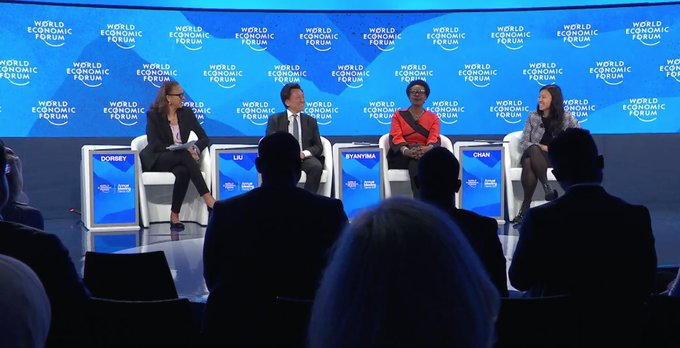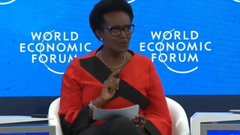Racism, an ideology created to justify an economy of slavery, has remained despite the end of slavery and colonialism and must be tackled, Winnie Byanyima has said.
The UNAIDS Executive Director was Tuesday speaking at the World Economic Forum in Davos during a discussion on the journey towards racial equity.
She said the starting point in tackling racism has to be that those experiencing racism have the space to speak their truth.
“I have no faith in policies driven from the top, that are not led by those experiencing racism themselves,” she said.
Racism is not only police violence, it is policy violence says @Winnie_Byanyima at #WEF22.
Watch the full session 👉🏾 https://t.co/MraV4H6wSf pic.twitter.com/RayLPuDzIQ
— UNAIDS (@UNAIDS) May 24, 2022
Flanked by other speakers; Alex Liu, Cheryl L. Dorsey and Pamela Chan, Byanyima emphasised why the ideology of racism “must be removed from our culture”.
“When people cannot access health care or education because the debt crisis chokes off financing in majority black and brown countries, what do you call that? That’s racism.”
She talked about new HIV medication that could help save many lives.
“But high prices and monopolies are set to keep many people locked out. Millions of black and brown people will, again, be denied life-saving medicine.”
Policies that have denied and continue to deny life-saving HIV medicines are racist, says @Winnie_Byanyima at #WEF22.
Watch the full session 👉🏾 https://t.co/MraV4H6wSf pic.twitter.com/6m12XKFKAB
— UNAIDS (@UNAIDS) May 24, 2022
“Slavery ended. Colonialism ended. But the ideology has remained and we have to remove it,” noted Byanyima, adding that racism is not only police violence but also policy violence.
“Policies that limit access to, and the production of, COVID-19 vaccines are racist. Policies that have denied and continue to deny life-saving HIV medicines are racist.”
AIDS pandemic
While speaking at the seventy-fifth World Health Assembly, taking place in Geneva, Switzerland, UNAIDS urged leaders to tackle the global inequalities that drive pandemics such as HIV and COVID-19.
UNAIDS highlighted that respect for everyone’s human rights is essential for achieving health for all.
In her address to the World Health Assembly, Byanyima urged leaders to urgently prioritize the investments needed to stop the AIDS pandemic as well as better prepare the world for future pandemics and ensure health security for everyone.
“The world remains dangerously unprepared to stop today’s pandemics or prevent those of the future, because we lack effective plans to ensure access to health technologies and finance trusted community-led organizations for pandemic response,” said Byanyima.

“We can beat pandemics and we can protect the health of all if we are bold in tackling inequalities, if we place human rights at the centre of our response.”
Ms Byanyima’s speech touched on three main areas of pandemic preparedness: access, financing and communities.
She concluded by congratulating Tedros Adhanom Ghebreyesus on his reconfirmation as Director-General of the World Health Organization during the World Health Assembly.
“Congratulations my brother Tedros! We look forward to continuing our work together to ensure health for all,” said Byanyima.








